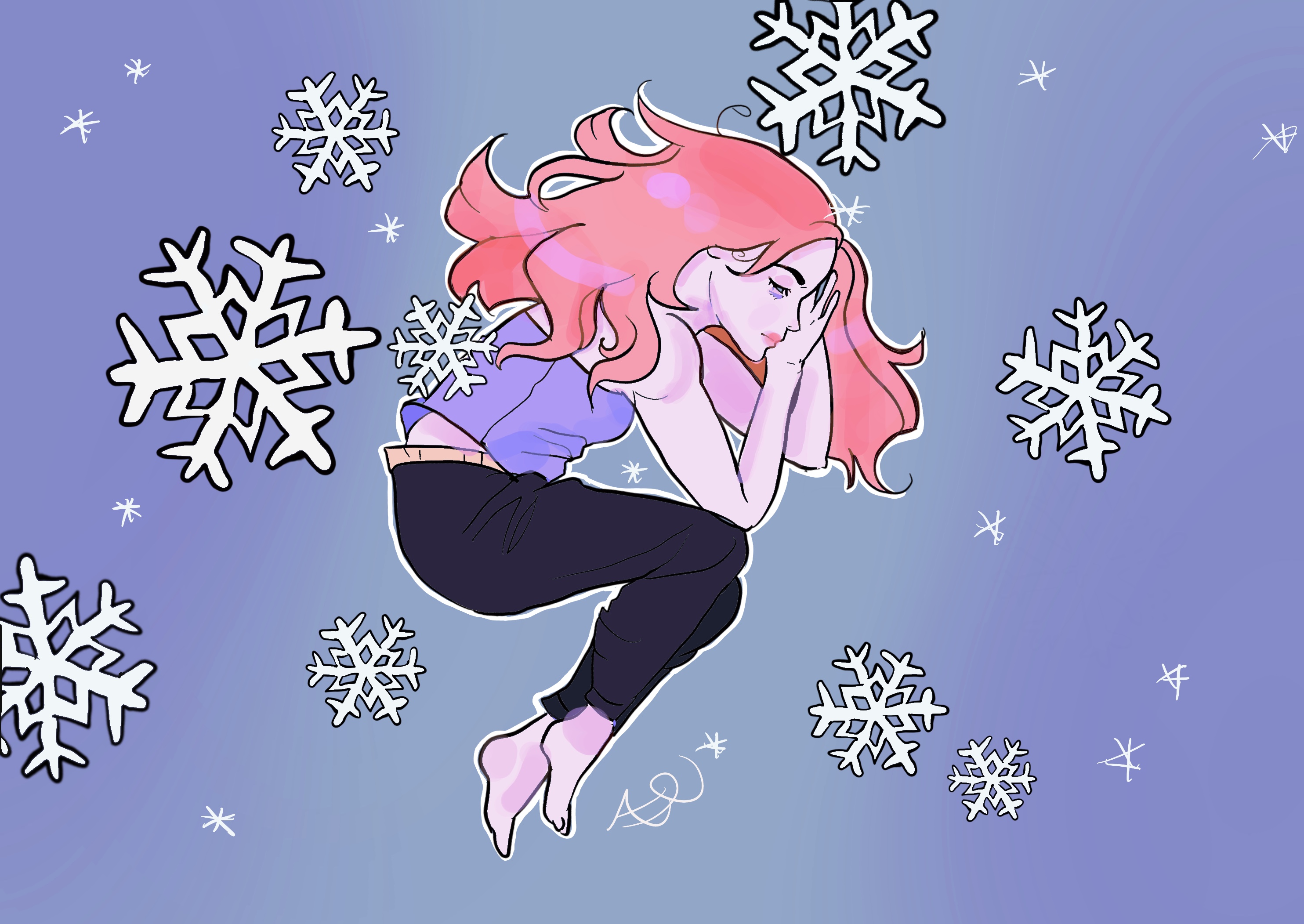
By Kayla Nguyen
Gray clouds drift in murky waves on the overcast skies. The air is dull and devoid of life and color. As you curl up inside, sitting by the window, you look out at the world around you and wonder why your winter isn’t “wonder-landing.” Surely, you should be feeling the joy of the holiday season and the cozy, cold weather. Instead, you are left bitterly shivering in your blanket, feeling lethargic and unproductive.
Why do you feel this way? Is it the winter blues … or seasonal depression?
What are the “winter blues”?
Winter blues is the feeling of depression that can happen as we get into the colder months of the year, commonly beginning around the end of fall to the start of winter.
It ranges in severity and symptoms. This is why some people just think of it as the “winter blues.” For others, it affects their daily functioning and causes them to seek medical help for their mental health. In this case, the proper medical terminology would be seasonal affective disorder, also known as SAD (period after every letter or no?) However, most people call it seasonal depression.
The winter blues can seem like a myth since not many people talk about it. However, a survey conducted by the American Psychological Association (APA)) reveals that nearly 40% of Americans struggle with them. So, if the winter months get you down, , know that you are not alone!
In general, struggling with this wintertime sadness will come with symptoms like loss of interest in passions and activities, feeling fatigued, sleeping more, increased irritability and anxiety, trouble thinking clearly/concentrating and sometimes craving more food.
Why does this happen?
Daylight is an important factor in your health. People living further from the equator struggle more with seasonal depression, since those areas are even less exposed to sunlight. The importance of daylight is also why all the anti-daylight savings articles argue that the time change is bad for your health, since the sun goes down earlier. From this point until the winter solstice, daylight hours will continue decreasing.
It is no coincidence that many people start getting winter blues around daylight savings time. Two chemicals in the brain that daylight affects are serotonin and melatonin. When the day is bright and you are exposed to sunlight, your brain produces serotonin, a happy hormone. Meanwhile, when it is dark, your brain will release melatonin, a sleep hormone.
When the winter months come and the weather becomes gloomier and darker, we have an increased amount of melatonin, resulting in us feeling sluggish, unenergetic and sleepy. You have trouble getting up for the day and feeling productive. This also explains why the opposite happens in the summer months, when you are happy, cheerful and full of energy.
How to beat the SAD-ness
We know what seasonal depression is, but how can we deal with it?
- Spending more time with friends and family
People have found a strong connection between social isolation and depression. Connecting with people you love who make you feel happy can significantly boost your mood!
- Keep a regular schedule
During these winter months, it is important to keep a good sleep schedule so your body has enough energy to get up in the morning. Having a laid-out routine is also important because when you lack productivity, your habits and routine day-to-day schedule will keep you on track.
- Exercise
Being active and working out releases serotonin in your body, helping you feel better. Also, if you find yourself binge eating due to your wintertime sadness, exercising can help offset the extra calories (although it’s perfectly healthy to eat and gain weight).
- Vitamin D
The sun is your best source of vitamin D. If you aren’t feeling well, the solution to your problem could be as simple as taking a few vitamin D supplements.
- Artificial sunshine
A popular way people help their winter blues is by using bright light therapy. These devices give off a light that imitates sunlight and helps with circadian rhythm. All you have to do is purchase a light and prop it up nearby where you are sitting when you notice you aren’t feeling well.
Conclusion
For some, “happy holidays” are harder to achieve than for others, but if you put in a little effort, it’s perfectly possible! Seasonal depression is something that should be talked about more. It’s so important to educate ourselves about mental health issues like this instead of trying to ride it out until it disappears.





